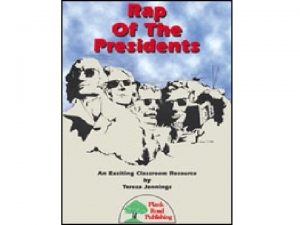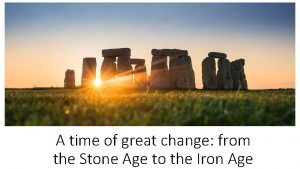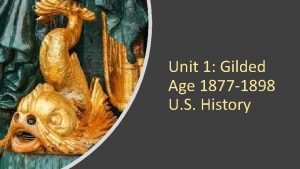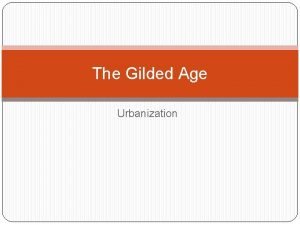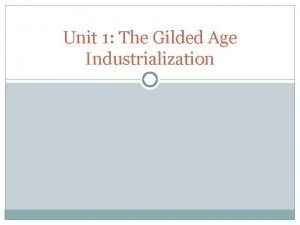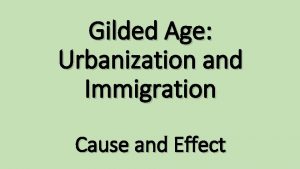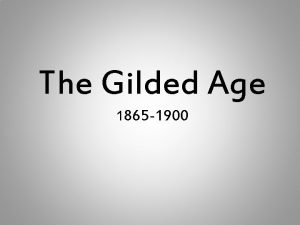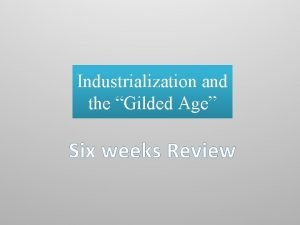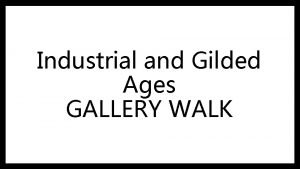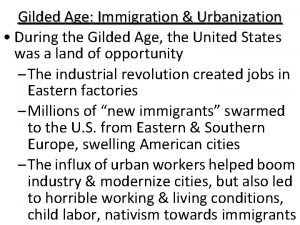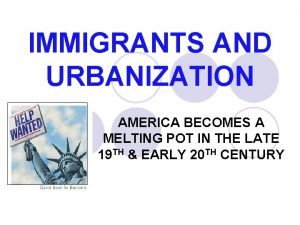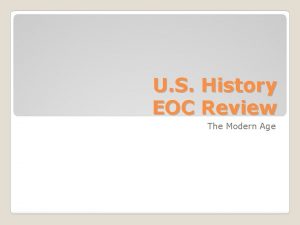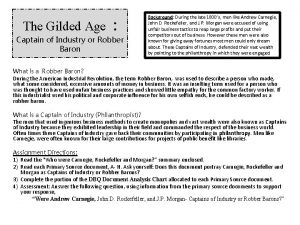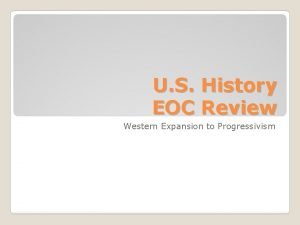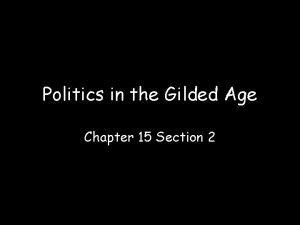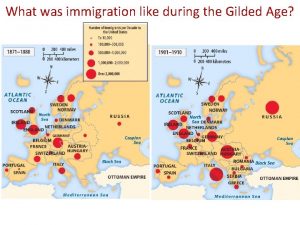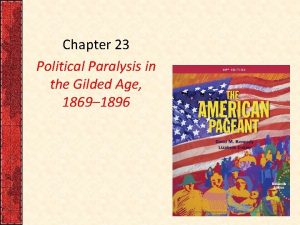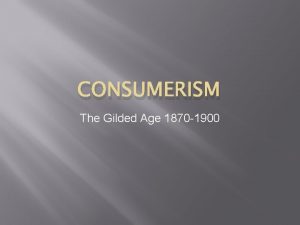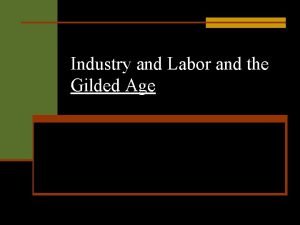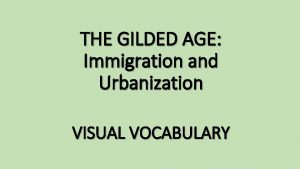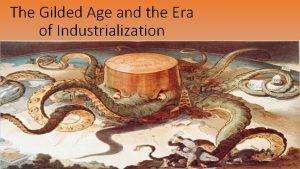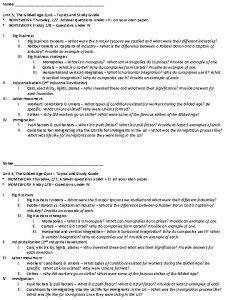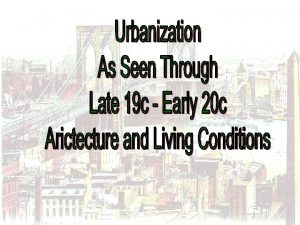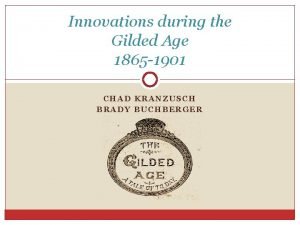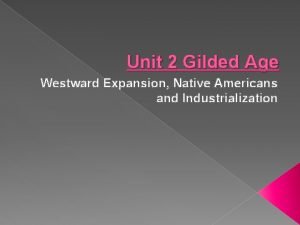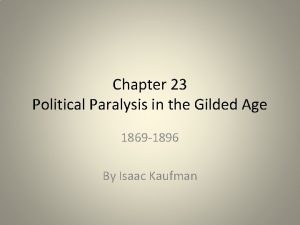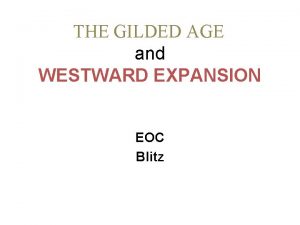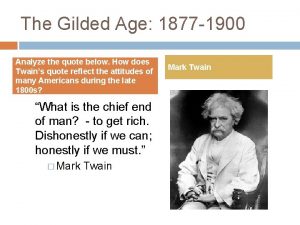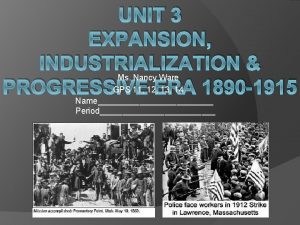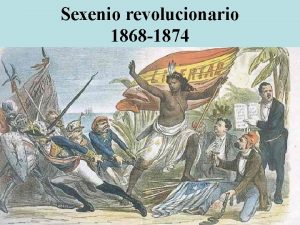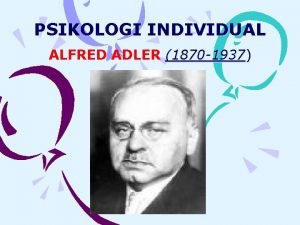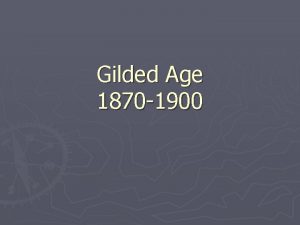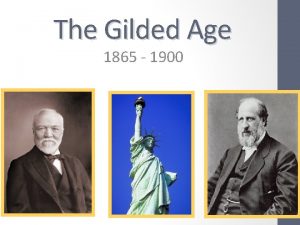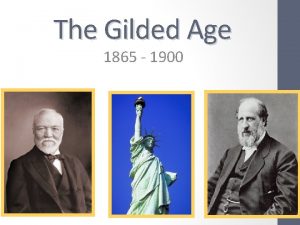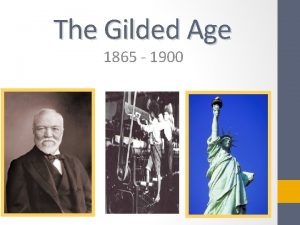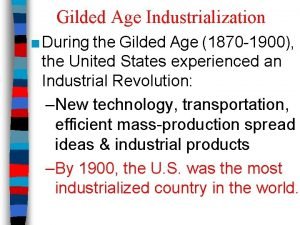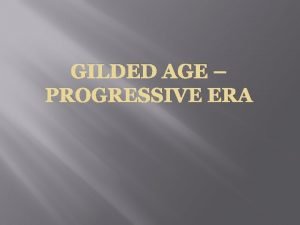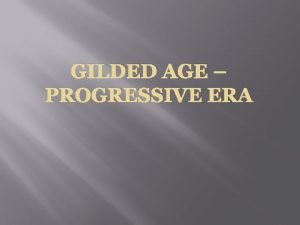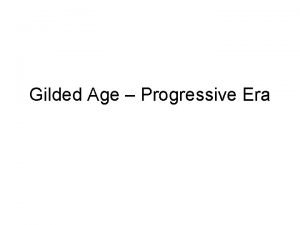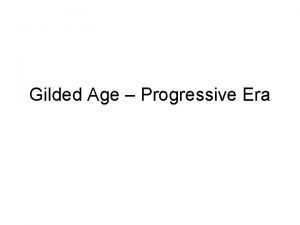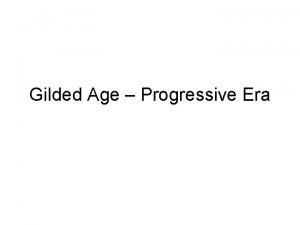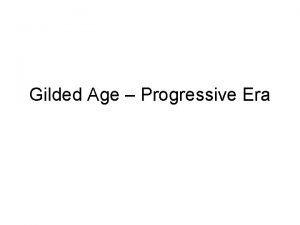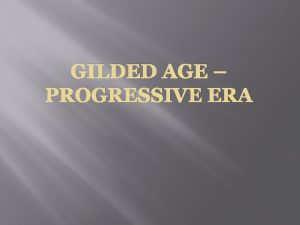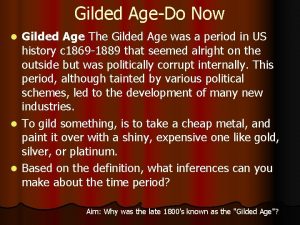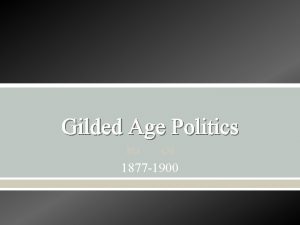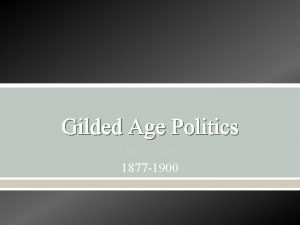Gilded Age 1870 1900 Presidents of the Gilded













































- Slides: 45

Gilded Age 1870 -1900

Presidents of the Gilded Age U. S. Grant 18691877 Rutherford B. Hayes 1877 -1881 Grover Cleveland 1885 -1889 and 1893 -1897 Benjamin Harrison 1889 -1893 James Garfield 1881 William Mc. Kinley 1897 -1901 Chester A. Arthur 18811885

Gilded Age-origin ► Gilded Age - Period when corruption in society was overshadowed by the wealth of the period ► (“gilded” something is golden/beautiful on surface but really cheap/worthless underneath Abuses in business and government caused problems for immigrants, laborers, and farmers ► Term comes from Mark Twain and Charles Dudley Warner in 1873 The Gilded Age ► View Intro to America’s Industrial Revolution

The Rise of Big Business – The who ► Andrew Carnegie § Industrialists who made a fortune in steel ► John D. Rockefeller § Industrialists who made a fortune in the oil refining industry § U. S. Standard Oil

The Rise of Big Business – The who ► J. P. Morgan § Industrialists who transformed banking & financing § Started his own private banking company § Created U. S. Steel Company buying out Carnegie Steel § Helped consolidate railroad companies

The Rise of Big Business – The who ► Cornelius Vanderbilt ►Shipping and railroad industries ►Consolidated railroad companies and controlled shipping costs

The Rise of Big Business – The who ► R. J. Reynolds ► Success in tobacco ► Locates to Winston because of railroads and tobacco rich region ► Camel cigarettes unique American tobacco blend ► Transition from hand rolled to mechanized rolled cigarettes ► Great success aided other Piedmont business such as Wachovia National Bank

The Rise of Big Business – The who ► Hanes Brands ► Pleasant Henderson & John Wesley ► Tobacco industry but sold out to Reynolds ► Started Shamrock Hosiery Mills renamed Hanes Hosiery ► Represents growth in textile industry in N. C.

The Rise of Big Business – The who ► Furniture ► ► Piedmont Region – High Point Abundance of hardwoods Good rail system Abundance of cheap labor

The Rise of Big Business Impact on Society ► Social Darwinism ► Captains of Industry ► Robber Barons § Natural Selection, Survival of the Fittest § Govt. should not interfere § Laissez-faire -policy that US govt. does not interfere with business § Positive idea-industrial leaders worked hard & deserved wealth § Support society through donations § the lack of regulation allowed businesses to become very powerful and exploitive

The Rise of Big Business Impact on Society Monopoly-complete control of a product or service ► Vertical Integration § A company or person owns all of the suppliers. (Ex. coal and iron mines, ore freighters, railroads lines) ► Horizontal Consolidation -A company buys out or merges with all competing companies (JP Morgan bought out Carnegie steel and other companies) ►

The Rise of Big Business Impact on Society ► Trusts -A group of separate companies placed under the control of a single managing board ► Critics called these practices unfair and the business leaders “Robber Barons”

Were “Robber the industrial capitalists the Gilded Barons” of the of Gilded Age “robber barons” or “captains of industry”? Weigh their positive and negative effects

Poor Working Conditions in the Late 1800’s Most factory workers worked 12 hour days, 6 days a week ► Steel mills often demanded 7 days a week ► No vacations, sick leave, unemployment compensation, or workers compensation for injuries on the job Video on factory work ► Children as young as 5 often worked as much as 12 or sometimes 14 hours a day, for as little as. $27 a day. ►

Working Conditions & Wages ► ► ► The factory system was a major change for workers: Factory work became less skilled Factory conditions were dirty, dangerous, and unhealthy Workers worked long hours (1216 hrs day) Factory workers were not paid well; Women & children were paid less than men Owners required workers “clock in” & limited their breaks to increase production

Conditions in the Coal Mines

Conditions in Coal Mines ► The steam engine and demand for steel increased demand for coal: Ø Coal production grew from 50 million tons in 1850 to 250 million tons in 1900 Ø Men, women, children were used in mines Ø Mines were unhealthy & dangerous: Lung disease, poison gas, drowning, explosions cave-ins were common for workers

Child Labor ► Industrialization changed the lives of many children: Ø Rather than working for their parents on family farms, many children in the cities worked in factories, brickyards, or mines Ø Living in cities was expensive so poor families needed their kids to work Ø Child workers earned 10% of an adult wage, worked long hours in dangerous conditions, were often beaten

Rise of Big Business = Rapid Urbanization - growth of cities ► 3 reasons cities grew in late 1800’s and early 1900’s ► § New immigrants arrived in cities for work § As machines replaced farmers they moved to cities § African Americans left South after Civil War and came to Northern cities. View Rise of NYC video

Problems in Cities ► ► 1. Tenement – crowded apartment building with poor standards of sanitation, safety, and comfort 2. Clean water – was difficult to produce and transport 3. Waste and garbage removal was a challenge and often neglected 4. Crime rose with urbanization A trip down Market Street video

Impact of Railroads on America during the Gilded Age Benefits § Stimulated growth of other industries (steel, iron, coal, lumber, glass) § Helped cities grow § Helped increase westward expansion of America § Standard time zones were created to get everyone on correct time ► Corruption § Charged much higher rates to western farmers § Credit Mobilier Scandal 1868 ► Union Pacific ► Fake construction company ► Bribed members of Congress ► Represented corruption of period ► View Corruption in Railroads

The Rise of Big Business ► Sherman of 1890 Anti-Trust Act § Law outlawing a combination of companies that restrained interstate trade or commerce; important to prevent monopolies. Not initially enforced properly. Benjamin Harrison “What can I do when both Parties insist on kicking”

The Rise of Labor Unions The Purpose of a labor union was “strength in numbers. ” Attempted to gain better working conditions and pay. ► The Knights of Labor ► § Was the first union to accept workers of all races and gender. Pushed for 8 hour workday, equal pay for women, accepted skilled and unskilled workers

The Rise of Labor Unions ► The American Federation of Labor (AFL)- Accepted only skilled white males, won higher wages and shorter work weeks for its members ► Head of AFL was Samuel Gompers

The Rise of Labor Unions ► Industrial Workers of the World (IWW) or Wobblies § Created in 1905, was a radical group of mostly unskilled workers who believed in socialism § Socialism-an economic or political philosophy that favors public (or social) control of property and income.


Setbacks for Labor Unions ► Great Railroad Strike of 1877 § RR workers strike to protest wage cut § Violence erupted in many cities for a week § President Rutherford B. Hayes sends in Federal Troops to put down strike § Scab –worker called in by an employer to replace strikers § Courts and Federal govt. often sided with business during Gilded Age

Setbacks for Labor Unions ► Haymarket Riot 1886 § Workers protesting and holding demonstrations in Haymarket Square Chicago § Speakers are socialist and anarchist (no govt. ) § Police arrive and bomb is thrown at police killing some and causing riot § Public blames labor unions and views them as radical, violent, and mostly foreigners

Setbacks for Labor Unions ► Homestead Strike-1892 § Workers strike against Carnegie Steel plant § Henry Frick was anti-union leader of plant ► Pullman Strike 1894 § Railroad industry strike in which 120, 000 striking railroad workers were stopped only by the intervention of the federal government

The New Immigrants -Between 1870 and 1920 -20 million Europeansmostly from Southern and Eastern Europe came to America - (Jews/Catholics) ► Hundreds of thousands more came from Mexico, Caribbean, and China ► Looked and sounded different than natives ► Nativism-Movement to ensure that native-born Americans received better treatment than immigrants ► Russian Jews

1888 Puck Magazine cartoon about American businessmen encouraging immigration for cheap labor which hurts Americans

The New Immigrants ► Ellis Island- In New York harbor where most European immigrants came to get processed ► Angel Island- In San Francisco where most Asians entered US ► Culture Shock ► Melting Pot

The New Immigrants 1882 -Chinese Exclusion Act - prohibited Chinese laborers from entering the country. Was not lifted until 1943. ► Gentlemen’s Agreement 1907– was reached between U. S. and Japan in which Japan agreed to restrict immigration to the U. S. ►


Political Cartoon depicting how Chinese immigrants workers lived and regular American workers lived. Rats, Yummy!


Problems of Rapid Urbanization- growth of cities ► 3 reasons cities grew in late 1800’s and early 1900’s ► § New immigrants arrived in cities for work § As farm machines replaced farmers they moved to cities § African Americans left South after Civil War and came to Northern cities. View Rise of NYC video

Problems in Cities ► ► ► 1. Housing shortages- Tenement – crowded apartment building with poor standards of sanitation, safety, and comfort 2. Transportation –struggled to keep up with growth 3. Clean water – was difficult to produce and transport 4. Waste and garbage removal was a challenge and often neglected 5. Fires were very common § Great Chicago Fire -1871 § San Francisco Earthquake 1906 6. Crime rose with urbanization A trip down Market Street video

Early Reforms to fix problems of Urbanization Settlement House – Community center organized to provide various services to urban poor ► Hull House -1889 – most famous settlement house established by Jane Addams and Ellen Gates Starr ► Social Gospel Movement – social reform movement that sought to fix social problems in the name of Jesus ►

The Rise of Political Machines ► Political Machines –an organized group of people that controlled the activities of a political party § By giving voters services they needed, the machine won their vote and controlled city government ► City Boss was head of Political Machines § Controlled Jobs in police, fire, and sanitation departments ► Agencies that granted licenses to businesses ► Money to fund large construction projects ► “All Politics center around the Boss” View Gangs in New York Clip #1

Political Machines ► Political machines loved immigrants, WHY? § Never voted, tried to sway votes by bribery, intimidation, and other means ► Political machines used power to § Rig elections § Become wealthy from kickbacks-illegal payments § Control police force to stay out of trouble

“Boss Tweed” and Thomas Nast ► William “Boss” Tweed City Boss of Tammany Hall- Democratic Political Machine in New York City ► Thomas Nast –political cartoonist who was critical of machines and Tweed


Corruption in Government ► ► ► Patronage or Spoils Systemgiving government jobs to loyal party workers or friends § Were not qualified § Used position to get money from government (graft) President James Garfield is assassinated by disappointed office seeker favoring Spoils System President Chester Arthur signs Pendleton Civil Service Act of 1883 James Garfield View video #2 View video #3 Charles Guiteau

Pendleton Civil Service Act 1883 Attempted to end Patronage/Spoils System ► 1. Creating the Civil Service Commission which required appointed govt. officials to pass the Civil Service Exam to base jobs on merit instead of friendship ► 2. Federal employees did not have to contribute to campaign funds ► 3. Federal employees could not be fired for political reasons ► Chester A. Arthur signed Pendleton Act into effect
 Gilded age president
Gilded age president Gilded age presidents apush
Gilded age presidents apush Gilded age
Gilded age These are the presidents the mighty mighty presidents
These are the presidents the mighty mighty presidents Stone age, bronze age iron age timeline
Stone age, bronze age iron age timeline Iron age bronze age stone age timeline
Iron age bronze age stone age timeline Chapter 23 political paralysis in the gilded age
Chapter 23 political paralysis in the gilded age The gilded age medvirkende
The gilded age medvirkende The gilded age 1877 to 1898 worksheet answers
The gilded age 1877 to 1898 worksheet answers Urbanization political cartoon
Urbanization political cartoon Entrepreneur gilded age
Entrepreneur gilded age Taylorism apush
Taylorism apush Staar review kahoot
Staar review kahoot Gilded age cause and effect
Gilded age cause and effect Gilded age time period
Gilded age time period Name 2 famous entrepreneurs of the gilded age
Name 2 famous entrepreneurs of the gilded age Gilded age gallery walk
Gilded age gallery walk Urbanization during the gilded age
Urbanization during the gilded age Melting pot gilded age
Melting pot gilded age Gilded age eoc blitz review
Gilded age eoc blitz review Was jp morgan a captain of industry
Was jp morgan a captain of industry Gilded age eoc blitz review
Gilded age eoc blitz review Wannamaker's
Wannamaker's Pallid politics in the gilded age
Pallid politics in the gilded age Chapter 15 section 3 politics in the gilded age
Chapter 15 section 3 politics in the gilded age Gilded age
Gilded age Chapter 23 political paralysis in the gilded age
Chapter 23 political paralysis in the gilded age Consumerism gilded age
Consumerism gilded age Gilded age
Gilded age The gilded age vocabulary
The gilded age vocabulary Fahrenheit 451 literary devices with page numbers
Fahrenheit 451 literary devices with page numbers Vertical integration gilded age
Vertical integration gilded age The gilded age quiz
The gilded age quiz Louis sullivan gilded age
Louis sullivan gilded age Inventions during the gilded age
Inventions during the gilded age The great railroad strike of 1877 was provoked by:
The great railroad strike of 1877 was provoked by: Gilded age acrostic poem
Gilded age acrostic poem Chapter 23 political paralysis in the gilded age
Chapter 23 political paralysis in the gilded age Gained voter support by helping immigrants find jobs.
Gained voter support by helping immigrants find jobs. Gilded age quotes
Gilded age quotes Promontory point gilded age definition
Promontory point gilded age definition Chapter 7 section 3 politics in the gilded age
Chapter 7 section 3 politics in the gilded age The tournament of today
The tournament of today Frise chronologique 1815 à 1870
Frise chronologique 1815 à 1870 Rey de españa entre 1870 y 1873
Rey de españa entre 1870 y 1873 Adler mengemukakan bahwa tujuan akhir hidup manusia adalah
Adler mengemukakan bahwa tujuan akhir hidup manusia adalah



